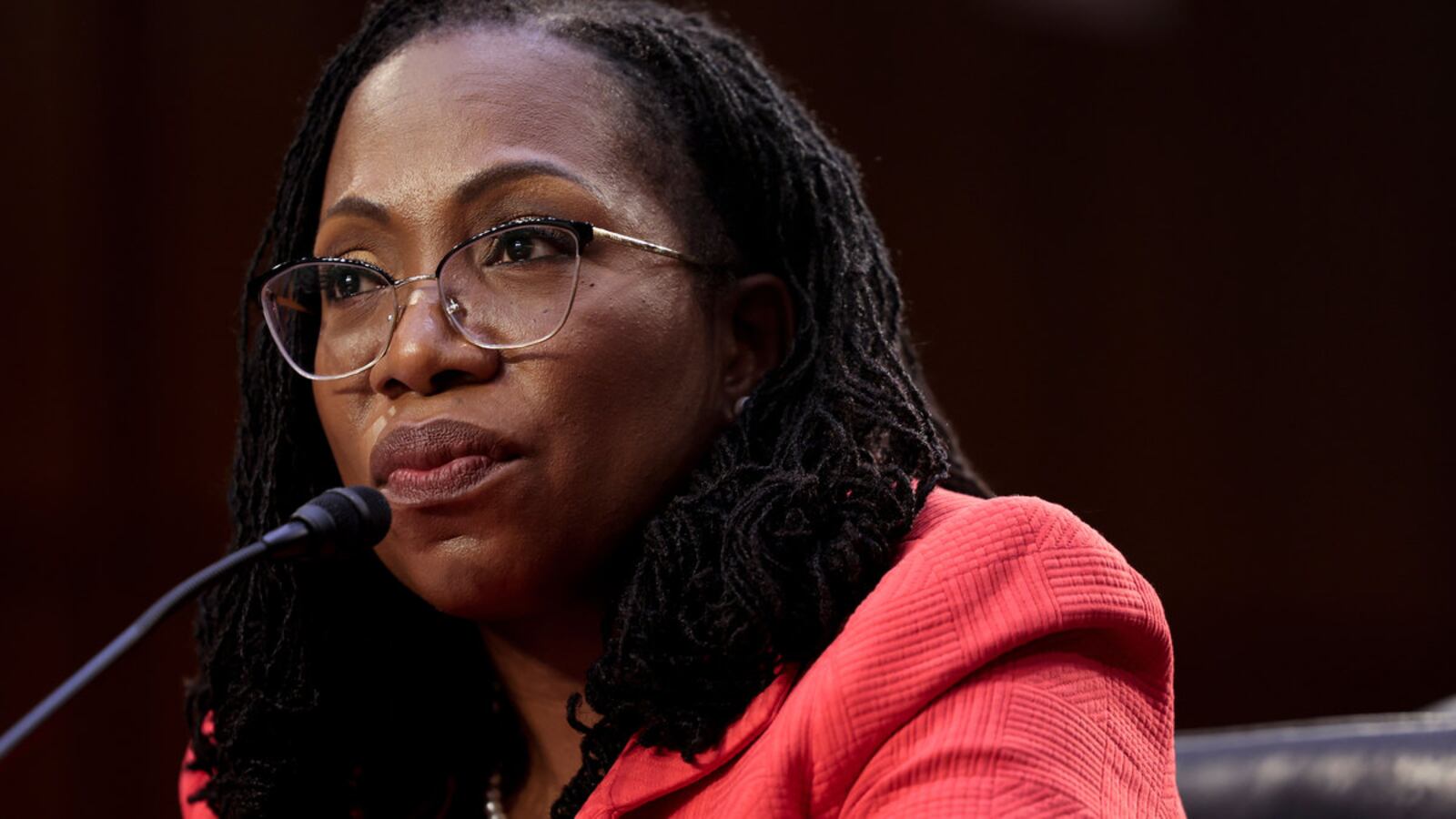With Judge Ketanji Brown Jackson’s confirmation as an associate justice on the Supreme Court, all Americans can be proud that a Black woman will finally sit on the highest court in the land. For too long, the Supreme Court was made up of exclusively white men, and it matters that young Black girls will be able to look at the faces on the bench and, at last, see someone who resembles them.
But Jackson also brings valuable professional diversity to the Court, thanks to her two years’ experience as a federal public defender.
On the current Supreme Court, two justices were former prosecutors, and all the justices except Amy Coney Barrett have at some time been advocates for the government. While those are valuable career choices too, those who choose to advocate for the rights of the accused commit themselves to one of the most important—and least respected—roles in our constitutional system. Judge Jackson’s choice to be a public defender shows she understands the crucial role that due process plays in our criminal justice system.
And yet, many Republican critics of Jackson seem to not understand the importance of due process, despite having every educational opportunity to learn it. Sen. Tom Cotton snidely said that Jackson might have gone to the Nuremberg trials to defend Nazis (yes, the accused Nazis rightfully did have defense lawyers). And Sen. Ted Cruz—a graduate of Princeton, Harvard Law School, and a former clerk for Chief Justice William Rehnquist on the Supreme Court—remarked that public defenders choose the role “because their heart is with criminal defendants. Their heart is with the murderers, the criminals, and that’s who they’re rooting for.”
Cruz’s shameful aspersion on public defenders ignores two important facts.
First, when someone is accused of a crime, whether they are a criminal has yet to be determined. Ensuring that the government has followed proper procedures in making that determination is the core function of a defense attorney.
Second, the point of a well-functioning criminal justice system is not merely to churn out guilty verdicts, it is to do justice. The guilty might confess their crimes under torture, but obtaining evidence through torture is not just, even if the accused is guilty of heinous crimes.
And much of the evidence excluded in trials is excluded because, in some ways, it is too good. For example, evidence that an accused rapist had previously committed three rapes is certainly not wholly irrelevant to the likelihood that he’s guilty. But jurors are forbidden from hearing that evidence, partially because they will likely regard it as too compelling, in a sense, and not focus on the case before them.
Doing justice is, of course, difficult. It requires a scrupulous adherence to the principles of due process in all cases—from petty thieves to accused terrorists. The paradigm cases of unjust criminal proceedings—the “trials” held in the Star Chamber in England and “show trials” conducted in totalitarian states—are typified by the accused lacking any rights, or anyone on their side to fight for those rights.
When a person is accused of being a criminal by the United States government, they are put into a confrontation against the most powerful organization in the history of humankind.
Standing between them and the government is the defense attorney, who can sometimes keep the government in check by deftly wielding the words written on a piece of parchment from over 200 years ago. By accusing defense attorneys of “rooting” for criminals, Ted Cruz, a supposed lover of the Constitution, undermines the Founders’ vision of a system where the rights of the accused and the presumption of innocence are core constitutional values. What would Sen. Cruz say about John Adams, who famously defended the British soldiers accused of perpetrating the Boston Massacre—that his “heart” was with the British and he was “rooting” for them?
Perhaps if Jackson’s Republican detractors could take a step back from partisan grandstanding, they would see that a woman who has spent time fighting the government might be more understanding when hearing noncriminal cases that Republicans often have more sympathy for.
Take Mike and Chantell Sackett, for example, a couple who have spent the last 15 years fighting the EPA for the right to build their house. The Sacketts’ property was declared part of the “waters of the United States,” even though the land has no surface water connection to any body of water. Ten years ago, they first fought their way to the Supreme Court to ask for the right to challenge the government’s classification of their property, winning unanimously. In the next term, the Court with Justice Jackson will hear the Sacketts’ case again, this time on the meaning of “waters of the United States.”
The Sacketts’ story is not unlike that of a criminal defendant fighting for a fair process, and Jackson might see some parallels when she hears the case. Even if a criminal defendant and the Sacketts are both “guilty”—i.e., if the Sacketts’ land is a “water of the United States”—the process matters.
The Constitution implicitly assumes that government agents—from prosecutors to police to EPA officials—can’t be blindly trusted to exercise their judgment properly in every circumstance. To keep the process fair, we need advocates that keep the government accountable, whether that’s the attorneys bringing the Sacketts’ case from the nonprofit law firm the Pacific Legal Foundation, or public defenders like Justice Jackson once was.
It’s not easy to be an attorney that fights against the government, nor is it very lucrative, and those who have made that choice are likely to possess a strength of character that will serve them well as judges or justices.
When fighting the government, you should probably expect to lose from the outset. Even with able representation and friendly judges, the government has so many advantages that it’s surprising anyone ever wins. Public defenders often labor against prosecutors with 10 times more resources and the ability to coerce testimony with various plea deals. In the public defenders’ corner—in all our corners—is the Constitution and hopefully a judge willing to hear them out.
On the Supreme Court, Justice Jackson can be that type of judge.








